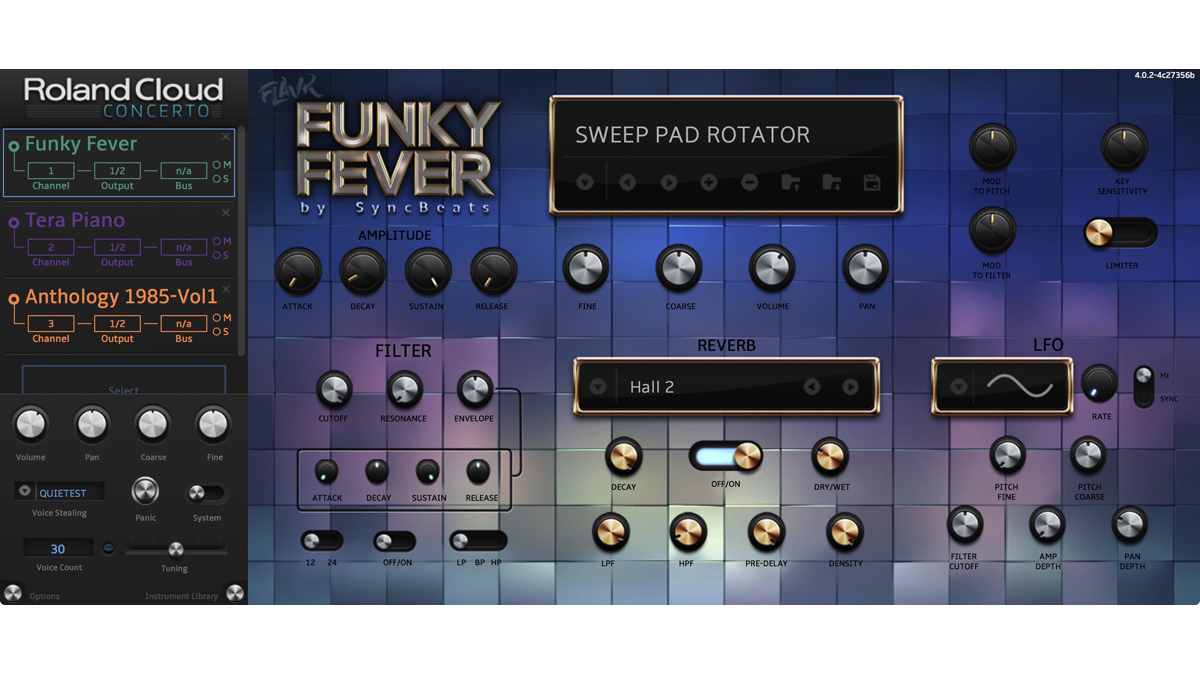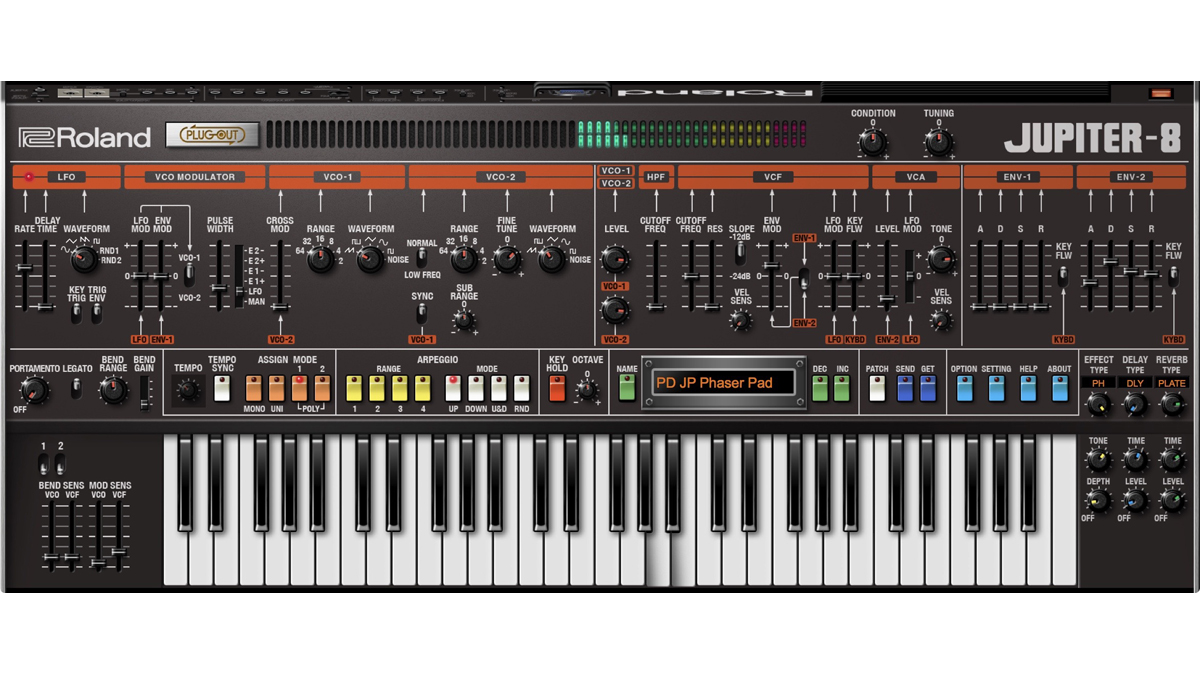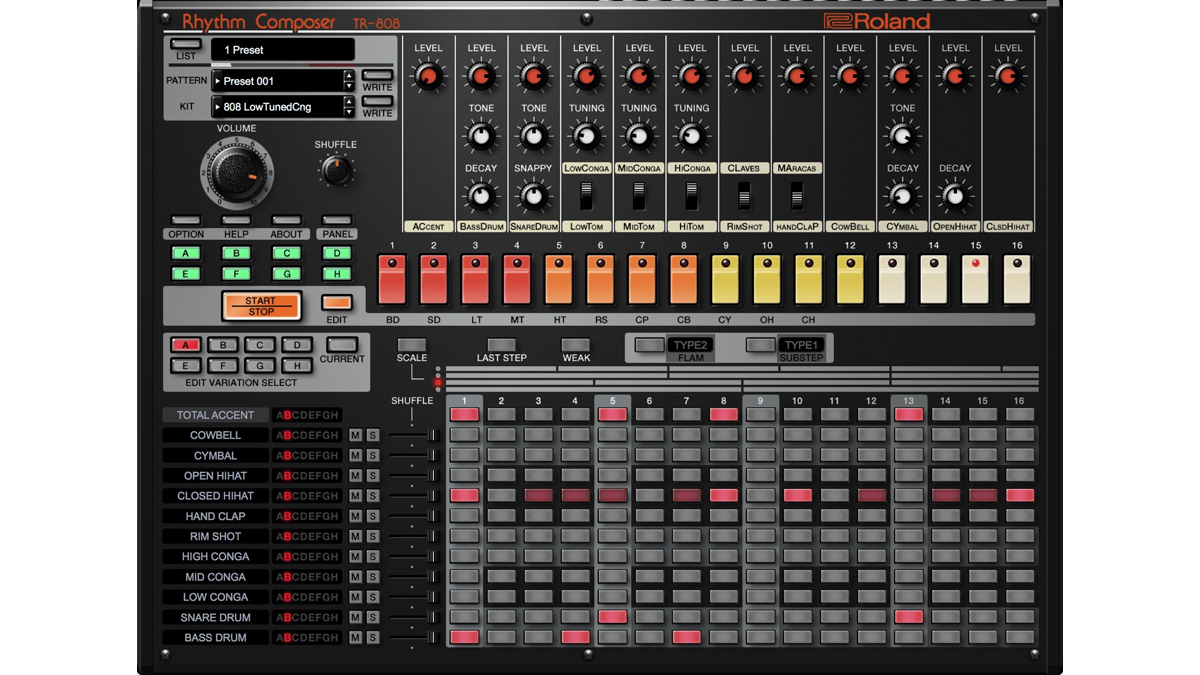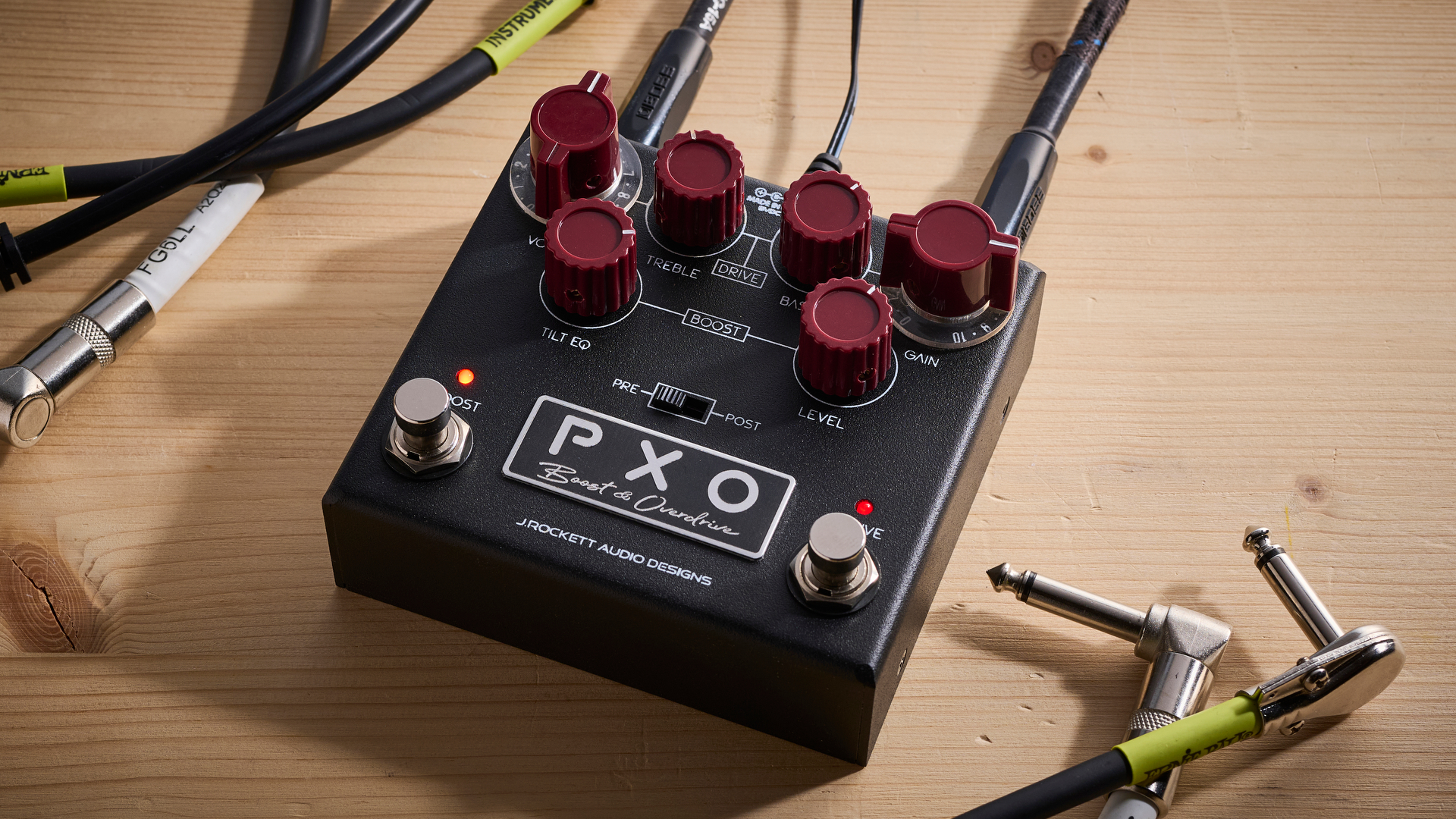MusicRadar Verdict
Assuming Roland keeps adding regularly to the roster, Roland Cloud is a reasonably priced library of brilliantly realised drum machines and synths, and less-impressive-but-nonetheless useful sample-based instruments.
Pros
- +
Legendary and Aira Series instruments are awesome
- +
Authentic, official emulations
- +
Concerto instruments are a nice bonus
- +
New instruments added regularly
- +
Plug-Out integration
Cons
- -
Partly depends on Roland maintaining momentum with new additions
- -
Synths are very processor-intensive
MusicRadar's got your back
Roland’s isn’t the first music software subscription service to make it to market, but it’s certainly the highest-profile. For a monthly or annual fee, Roland Cloud gives you unlimited access to a gradually expanding library of so-long-awaited-we’d-almost-given-up-hope official first-party emulations of the corporation’s vintage and current synths and drum machines, as well as a sizeable collection of era- and genre-based ROMplers.
Currently, a subscription costs $19.95/£18.95 a month, or $215/£185 for a year, with the initial 30 days being free. What’s more, the cunning YOURS loyalty program lets you transfer one instrument for every year you subscribe (even with breaks) to a permanent license, regardless of subscriptions status thereafter.
Cloud busting
So, what do you get for your money? Roland describes its Cloud as “a service, not merely a collection of instruments”, but in reality (R-Mix notwithstanding - see below), a straight-up collection of VST/AU plugin instruments is exactly what this is, and that’s fine with us.
The software is arranged into seven ‘Series’; The Essentials Series houses Roland Cloud Manager and Roland Cloud Concerto. Roland Cloud Manager is a taskbar/toolbar-launched app for installing, updating and uninstalling your instruments. It’s basic and it gets the job done, although, notably, there’s no ‘Update all’ option. That’s presumably because the Manager doesn’t actually handle the installation and updates - it just downloads the installers then hands them over to the OS, which runs each one individually. Thus, when multiple updates arrive at once, applying them all can be a tedious process.

While the Aira and Legendary Roland Cloud instrument Series are fully modelled emulations, the Tera, Anthology and Flavr Series are all multisample-based, loading as libraries into the Concerto engine.
Concerto loads as an AU or VST plugin, and is 16-part multiimbral, so you can fill a single instance with multiple libraries, each on its own MIDI channel. Despite their varied colour schemes and layouts, the Anthology and Flavr instruments share a common control set, including a multimode resonant filter; an LFO for modulation of amp, pitch, pan and filter cutoff; amp and filter envelopes; a convolution reverb and a limiter. Tera Piano and Guitar lose the filter and LFO, but add in the likes of Fret Shift and Lid Mix.
Concerto is straightforward and easy to get to grips with, and its filter and reverb sound wonderful. It also supports RAINLINK, Roland’s “high-definition music, sound, and video performance and control technology”, which will eventually enable improved rendering of local parts via multi-terabyte libraries in the cloud, amongst other things. RAINLINK is apparently already baked into the two Tera instruments in the form of a knob that increasingly blurs an adjacent sine wave graphic, but with no manuals available for them, it’s anyone’s guess as to what this control actually does - something to do with triggering resolution, we’re guessing.
You don’t have to be connected to Roland Cloud to use any of its instruments once they’re installed, incidentally, but your Mac or PC does have to be online for authentication once a week. Roland Cloud Concerto is discussed in the boxout.
The Aira and Legendary Series plugins are unarguably the main events. The first consists of emulations of the Aira System-1 and System-8, and with the software running the exact same ACB (Analog Circuit Behaviour) algorithms as their physical counterparts, they’re essentially flawless. The plugins even enable communication with the corresponding hardware for hands-on control and bi-directional patch transfer.
The Legendary Series, meanwhile, hosts (at the time of writing) 12 virtual Roland instruments: the TR-808 and 909, SH-101, System-100, D-50, Jupiter-8, Juno-106, JV-1080, SRX Orchestra expansion board, Promars (a mad but worthy inclusion), SH-2 and Sound Canvas VA.
Also using Roland’s ACB and DCB (Digital Circuit Behaviour) modelling, each and every one is simply astonishing in its sonic realism and playability. A few new features have been added, too, including multitrack pattern sequencers for the TRs, extra effects and waveforms for the 1080, increased polyphony for the Juno-106, and Plug-Out functionality for the analogue synths.
The Tera, Anthology and - cringe - Flavr Series are multisample libraries that load into the Concerto plugin. Tera is all about acoustic instrument emulation, and at present offers a piano and a steel guitar; Anthology serves up various classic Roland sounds from a range of specific years -1985, 1986, 1993, etc; and Flavr comprises smaller libraries of genre-based presets - electro-house, disco, synthwave, etc.
The seventh Series, Software Solutions, currently only has the six-year-old and not particularly useful R-Mix “mix manipulation” app for Windows rattling around within. Whether this section dies on the vine, we’ll see, but it’s not exactly a flying start.
While the Concerto libraries are good to have, Roland Cloud’s main draws are undoubtedly the Aira and Legendary plugins, which look great and sound absolutely fantastic - all but indistinguishable from the real things, and genuinely evoking that authentic Roland vibe. The price of such power is a hefty CPU hit, however. The System-8 hovers around 50% in Ableton Live’s CPU meter on a 3.3GHz i7 MacBook Pro with 16GB RAM, set to a 256-sample buffer, while the Juno-106 pegs at about 30%, and even the humble TR-808 demands about 13-15%. This is clearly down to the quality of the circuit modelling, rather than inefficient code, but it’s something to be aware of.

Above the Cloud
The website talks about Roland Cloud being “a deeply embedded part of the creative community” that “listens to then delivers what you want”. However, given that it’s taken around two decades of begging by fans the world over for the company to finally deliver official software versions of its rightly revered synths, you’ll forgive our scepticism with regard to that having any real substance, or the mysterious aforementioned “services” materialising any time soon.
As it currently stands, though, Roland Cloud makes for a hugely compelling library of truly superb virtual Roland instruments - which, really, is all we want - supplemented by some solid ROMplers and a mediocre mixing utility. For around the price of a single high-end plugin a year, you get 14 excellent synth and drum machine emulations, with more due to be added over time - although, of course, we have to trust Roland not just to pad out the schedule with a diversionary stream of ROMpler libraries.
Ultimately, then, while we’d welcome the parallel option to buy each instrument separately for those who want it, the subscription fee for Roland Cloud strikes us as good value, thanks in part to the YOURS program, which goes some way towards blurring the line between subscription and outright purchase. We very much look forward to seeing what the company adds to the platform over the months and years to come.
A music and technology journalist of over 30 years professional experience, Ronan Macdonald began his career on UK drummer’s bible, Rhythm, before moving to the world’s leading music software magazine, Computer Music, of which he was editor for over a decade. He’s also written for many other titles, including Future Music, Guitarist, The Mix, Hip-Hop Connection and Mac Format; written and edited several books, including the first edition of Billboard’s Home Recording Handbook and Mixing For Computer Musicians; and worked as an editorial consultant and media producer for a broad range of music technology companies.
“KIKI BOY 2025”: Frank Ocean appears to be teasing something... or other
“This is great. I knew I was getting to them! I’m so happy. It’s such a good feeling”: Spotify bites back at Kate Nash
“The included sample content is not only unique but sonically amazing, as it always was”: Spitfire Audio BBC Radiophonic Workshop review











